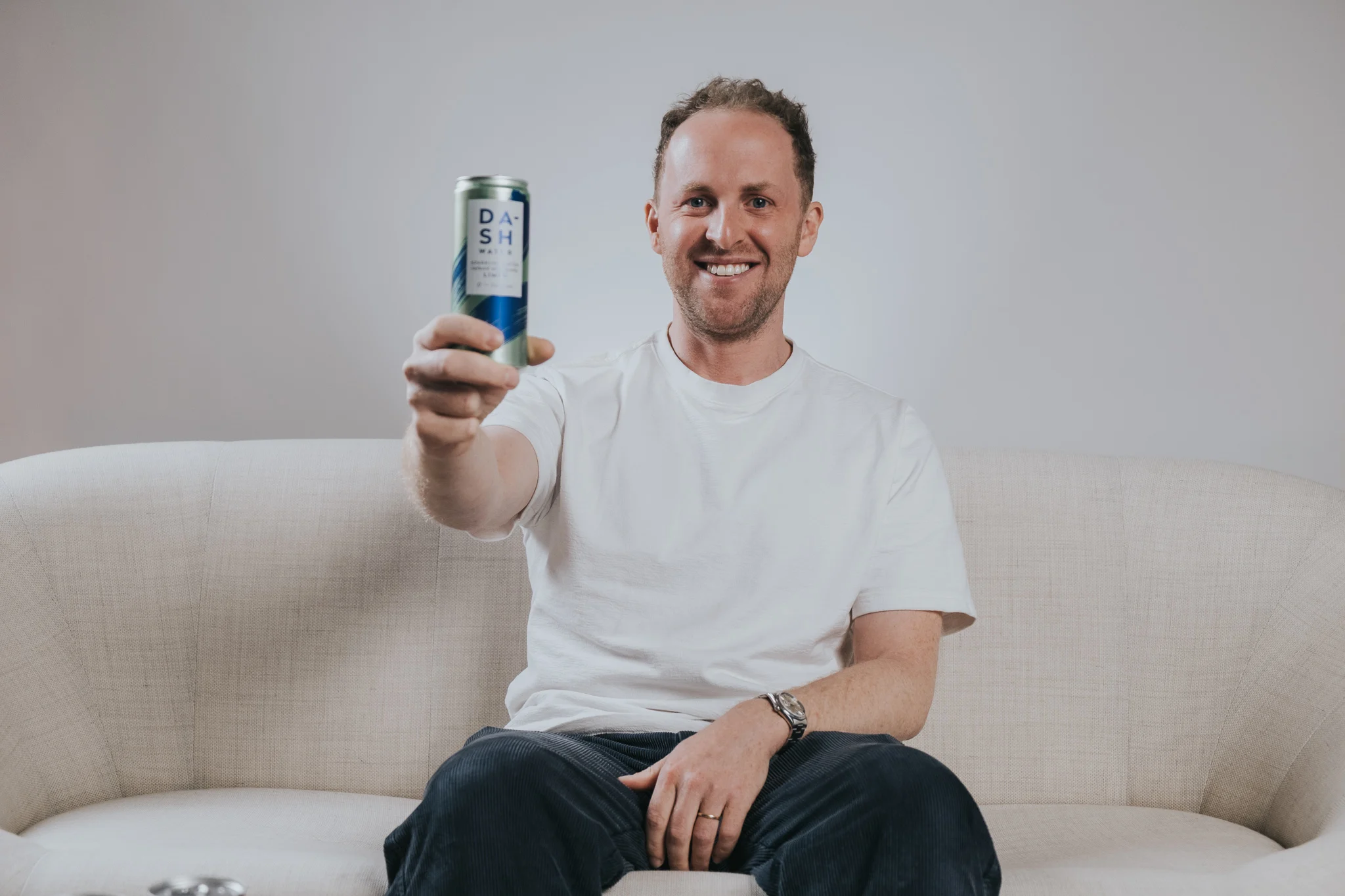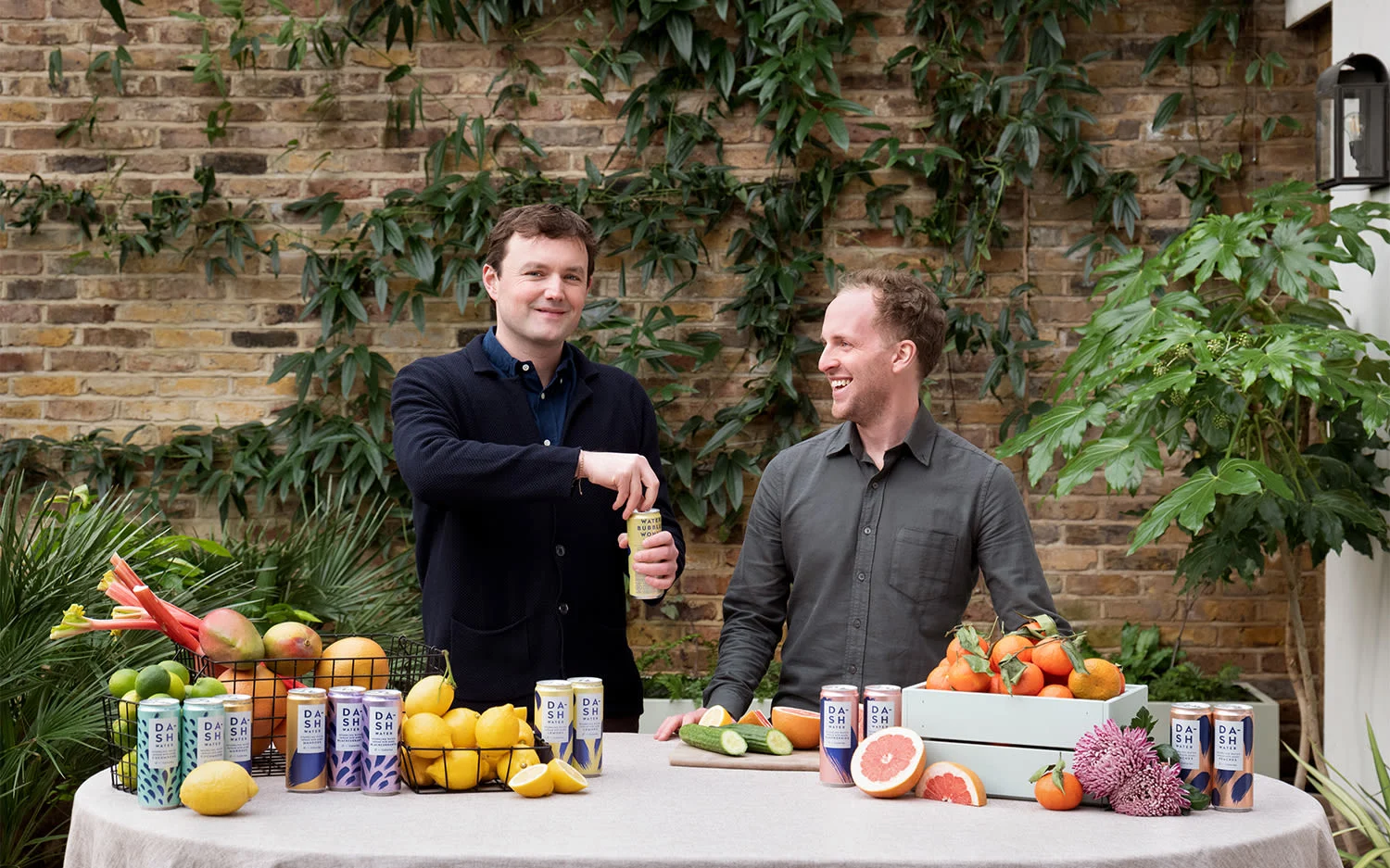Turning wonky veg into sparkling delight
We hear from Alex and Jack, farmers-turned wonky fruit-savers, to understand how they build DASH using a Start Up Loan

Co-founders of DASH Water, Jack Scott and Alex Wright, both grew up with farming backgrounds and saw firsthand how much fruit and veg went to waste - not even making it to a customer’s plate. Their solution? A delicious drink full of wonky fruit and veg and free from sugars and sweeteners.
Start Up Loan amount: £3,000
Year founded: 2017
Website: www.dash-water.com

How has Virgin StartUp helped you to get your business to where it is today?
[The Virgin StartUp Loan] has been brilliant. It gave us the opportunity to have a bit of capital to start the process. It made us accountable to our business plan and gave us the structure to take it all forward.
Do you have a mentor? If so, how did that relationship begin, what do you gain from it and how do you maintain it?
Ben Keene has been our mentor - he’s an amazing guy, having set up Tribewanted and Rebel Book Club, as well as being a Virgin StartUp business advisor. Ben really helped structure DASH’s journey right from the concept stage to our full launch!
When did you know that you needed to start raising investment?
The trigger for raising our first round of investment was because when we launched in March 2017, we thought that our first batch of 200,000 cans - it was a huge box - would sell in 18 months, taking us to May 2018. But we ended up running out about 5 months earlier than planned, in November 2017! So we quite quickly needed to raise cash because our sales were better than we thought they’d be.
The one thing I always say to founders trying to raise funds is get great accountants to know where you are financially at any one time, and have great solicitors. They’re very expensive but very, very worth it.
How did you perfect your pitch to investors?
By practising, practising, practising! It’s really boring, but in order to make sure that you perfect the pitch, it has to be razor sharp. We practised it on family and friends, especially ones we knew who worked in finance and would ask us slightly more sophisticated questions than my mum would ask!
What are 3 things you wish you’d have known when networking and meeting investors?
Raising investment takes a hell of a long time, much longer than you always think. The quantity of work is a lot more than you initially forecast, so make sure that you put aside a fair amount of time, a minimum of 3 months, but it’ll probably take up to 6 months if you consider putting together all the documentation, your forecast, pitch deck and EIS (Enterprise Investment Scheme) application.
Getting an investor is like a marriage, because it’s very hard to separate from that investor, so make sure you get to know them very well. At DASH, we get to know someone socially as well as professionally, before allowing them to invest.
Make sure that investors add value to your business. There are loads of investors out there so there’s no point getting one that you don’t get on with, that doesn’t share your mission and you always have to make sure they can add value so they can contribute towards your business to make it even more successful than it already is.
What advice do you have for neurodivergent founders?
I’m dyslexic and the best thing is having fantastically successful people like Richard Branson being so vocal about it and taking away the stigma around it. It’s really key to make sure we can raise awareness about the way people operate differently, so people don’t just think everyone will act and think the same way; we have to take each person with their merits.
One of the key impacts that dyslexia has had on my life as a founder is that I’m dreadful at spelling, absolutely awful, so the key tool I have is that handy spell checker on my laptop!
What's been your biggest business achievement to date?
There’s huge momentum especially in the press around health, and at DASH we are at the forefront as a product that doesn’t have any sugar or sweetener. There’s been a lot of negative press around sweeteners recently, so we want to make sure we offer consumers a credible product that tastes delicious but doesn’t have any of the bad stuff.
We are also expanding pretty rapidly - next year we’ll go on to sell about 40 million cans! And we’ll be making strides into Europe; it’s good to have some more markets coming up.
And doing all of this while raising awareness of food waste and working with some great charities.